
If you’re wondering if RVs have VINs, you’re not alone. I was curious about this too, so I did some research. Here’s what I found out.
RVs Have VIN Numbers
Yes, RVs have unique vehicle identification numbers. All vehicles on the road have these numbers to identify them. The VIN is usually on the driver’s side of the RV, near the windshield, similar to where it would be in a car, truck, or SUV.
Why RVs Have VIN Numbers
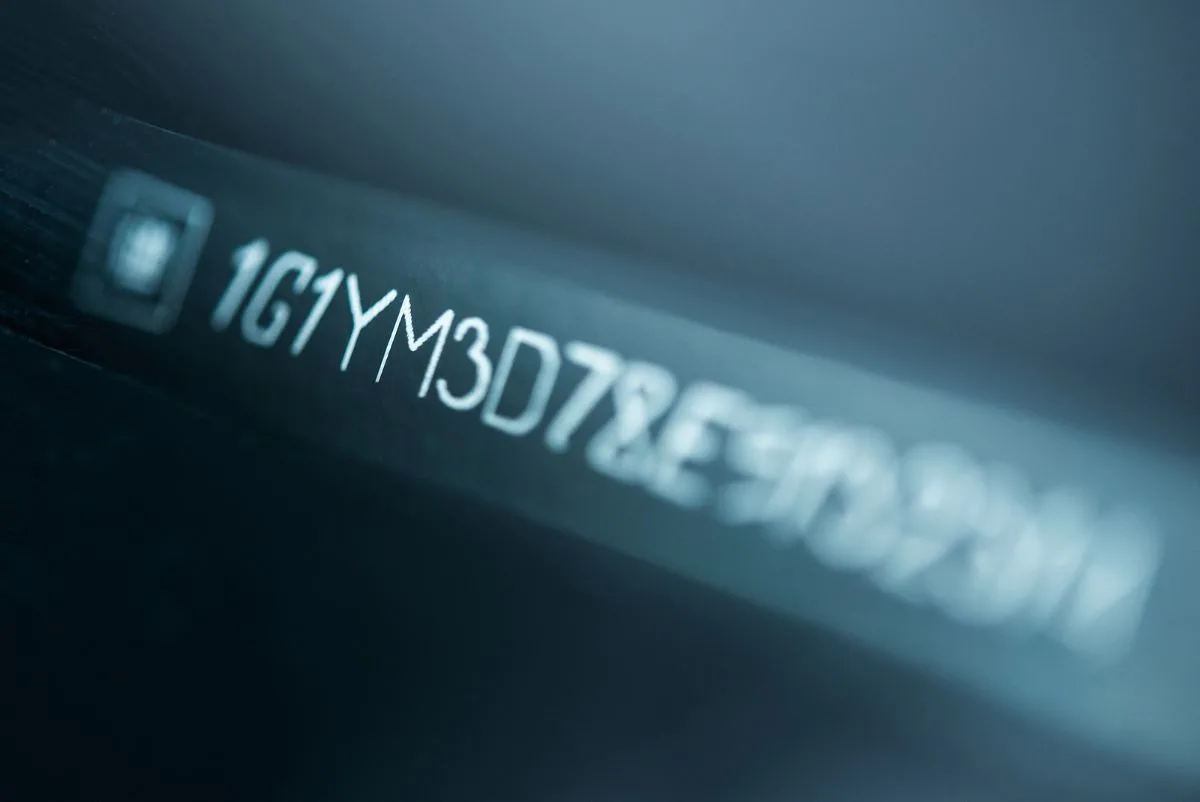
The main reason RVs have VIN numbers is for insurance. My agent explained that if someone steals my RV or totals it in an accident, the company will use the VIN to identify it.
When I went to register my RV, the DMV also used the VIN. They needed it to keep track of all the vehicles on the road for safety reasons.
Manufacturers use the ID to keep track of warranty information and any recalls for the RV.
How RVs Get Their VIN Numbers
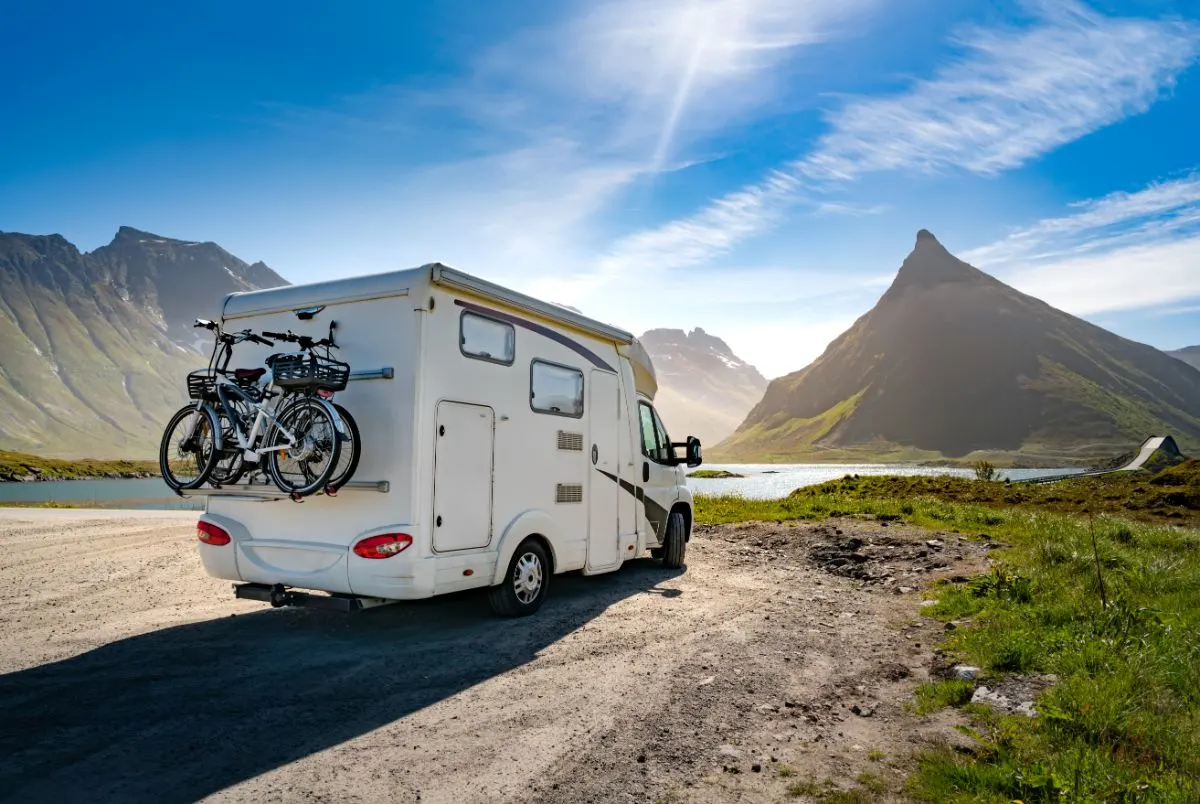
RV manufacturers assign VINs to their vehicles. The Department of Transportation has a set of standards that all VIN numbers must follow.
The first three digits are the World Manufacturer Identifier. This lets you know where the RV was made. The following five digits are unique to that specific RV. They reserve the last eight digits for the manufacturer’s use.
You can find more information about VIN numbers on the National Insurance Crime Bureau website.
Is it Expensive to Register a Recreational Vehicle?
The cost of registering a recreational vehicle varies from state to state. I called the DMV in my state, and the amount was around $50 for new registration. If you’re renewing your registration, it’s usually less.
When I registered my RV, I had to show proof of insurance to the DMV. The agent also asked for the VIN number. Depending on your state’s requirements, you may need to show other documents. I had to provide the title and a weight certificate.
I took my RV to a truck stop that had scales to get a weight certificate. They weighed the RV and charged me a fee. I needed to have the certificate to get my license plates.
The entire process of registering my RV wasn’t too difficult or expensive. I’m glad I finally did it, and now I can enjoy my RV without worrying.
Does an RV Need an Annual Safety Inspection?
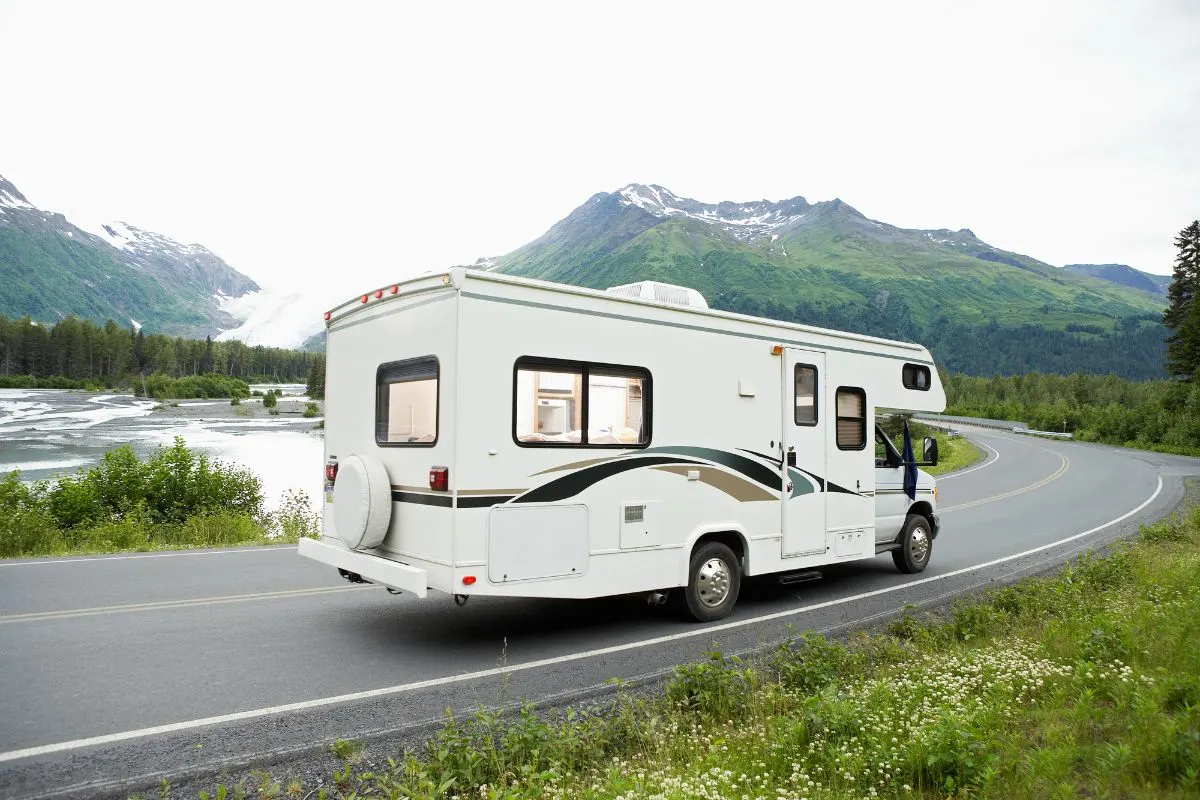
Most states don’t require an annual safety inspection for RVs. However, a few do, so it’s best to check with your local DMV.
Even if your state doesn’t require it, I recommend getting one done every year. It’s an excellent way to catch any potential problems early on.
You can take your RV to a dealership or a certified mechanic to get an inspection. They’ll check things like the brakes, lights, and tires. Depending on how often you use it, it may need more or less maintenance.
Typical services include oil changes, greasing the axles, and winterizing the RV if you live in a cold climate. Like any vehicle, you may need to rotate the tires and replace them every few years.
Admittedly, I spend a lot of time in my RV. So I takem mine for service twice yearly. I figure it’s better to be safe than sorry, especially since I’m often on the road by myself.
How Does RV Insurance Work?
RV insurance is like car insurance. You can get liability, collision, and comprehensive coverage. You can also add roadside assistance and other types of protection.
RV insurance costs depend on several factors, including the type and value of your RV, your driving history, and where you live.
Is Full Coverage Necessary for an RV?
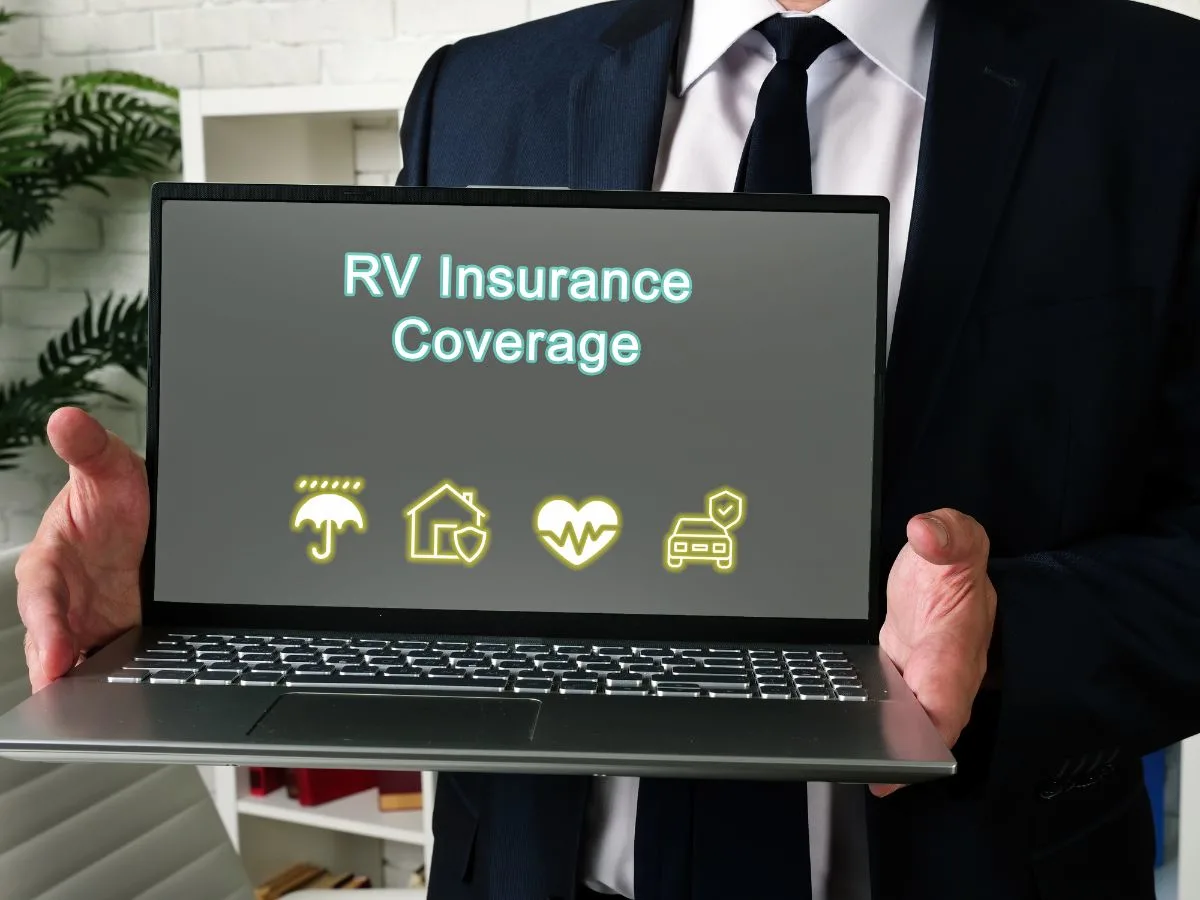
That depends on several factors, including the value of your RV and your personal circumstances. If you’re still making payments on your RV, your lender may require you to have full coverage.
If you own your RV outright, you may decide that you only need liability insurance. This is the minimum amount of protection required by most states.
I paid my RV off a few years ago but still keep full coverage.
What are the Advantages of Full RV Coverage?
The primary advantage of full RV coverage is that it protects your investment. If you total your RV in an accident, or if it’s stolen, you’ll be reimbursed for the value of your RV, less your deductible.
Full coverage also includes comprehensive and collision protection. This will pay for repairs to your RV if it’s damaged in an accident, regardless of who is at fault. You’ll be happy to have the coverage, even for a minor collision.
I had to use my comprehensive coverage when a tree fell on my RV while parked at a campground. The repairs were expensive, but my insurance covered them.
What are the Disadvantages of Full RV Coverage?
The primary disadvantage of full RV coverage is the cost. This type of insurance is more expensive than liability-only insurance.
Another downside is that you’ll have to pay a deductible if you need to use your insurance. The deductible is the amount you’re responsible for before your insurance company pays.
For example, if your RV is damaged in an accident and costs $5,000 to repair, you’ll have to pay the first $500 out of pocket. Then your insurance will cover the remaining $4500.
Does Insurance Cover Anything Towed With an RV?
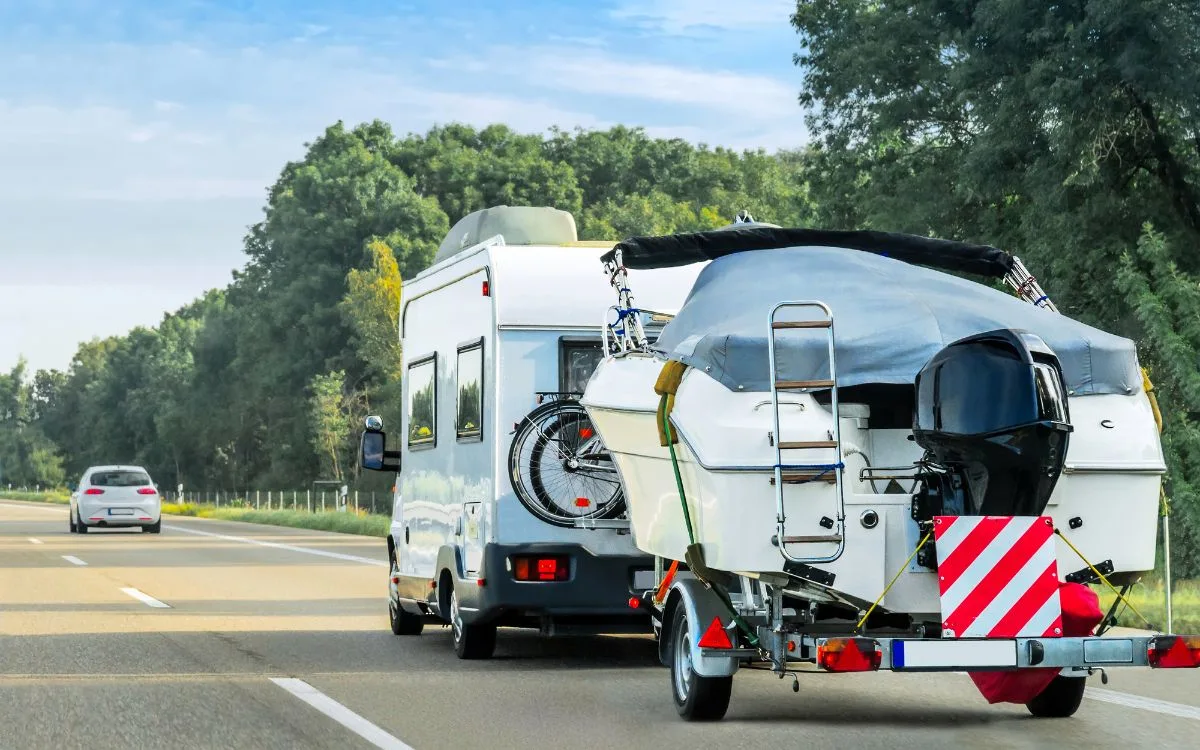
Most insurance companies will cover anything you tow with your RV, as long as it’s properly secured. This includes a trailer, boat, or ATV.
Remember, you still may need to register and insure these other recreational vehicles separately.
Also, you may need separate insurance on your boat or ATV, depending on your state.
An umbrella policy is insurance that can provide additional protection for your RV, boat, and other recreational vehicles. This is a separate policy that you purchase besides your RV insurance. It provides coverage over and above the limits of your standard policy.
For example, your RV insurance will pay up to your policy limit if you’re involved in an accident that damages someone else’s property. But if the damage is more than your policy limit, you could be responsible for the difference.
Are There Other Insurance Options?
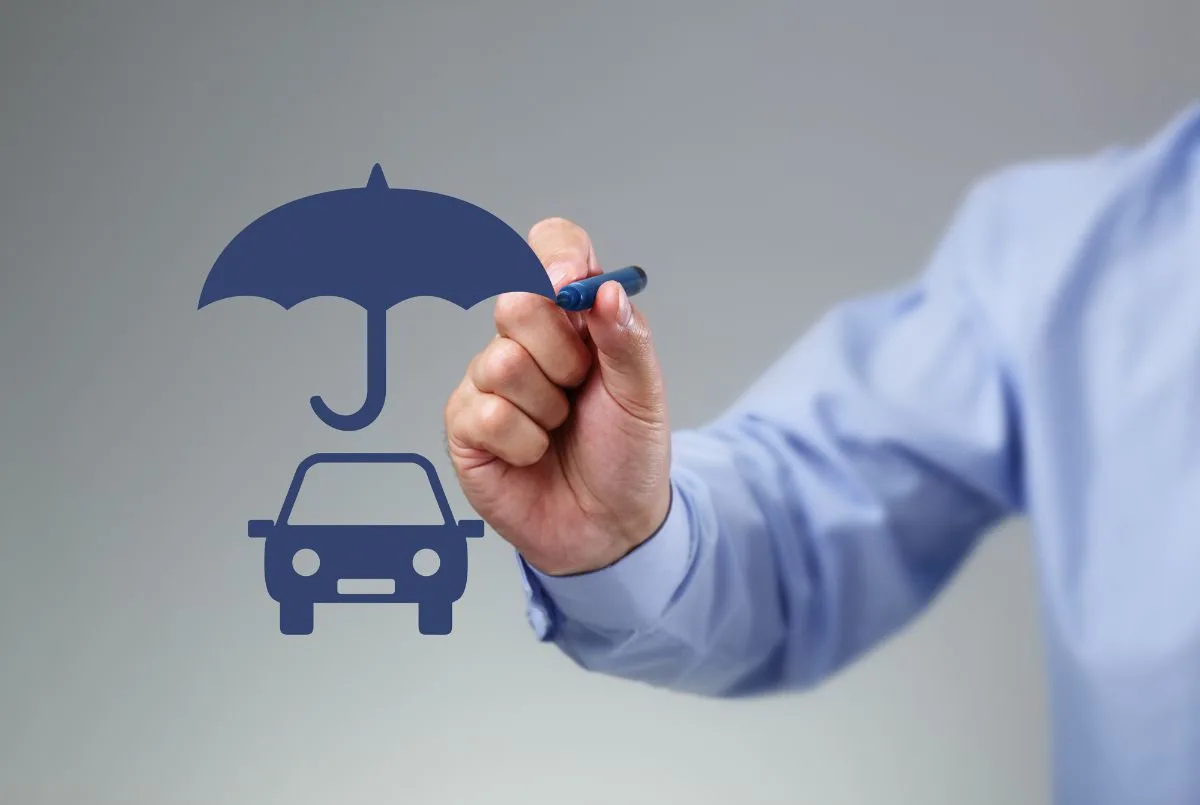
I have an umbrella policy. This coverage will pay this additional amount up to the limit of your umbrella policy.
Umbrella policies also provide protection against lawsuits. If you’re sued for damages that exceed your RV insurance policy limit, an umbrella policy can help pay for your legal expenses.
.I suggest shopping around for quotes from different companies before deciding on a policy. You can use an online service like Insure My RV to compare rates from separate insurers.
You’re one step closer to enjoying the open road now that you know more about RVs, VIN numbers, and insurance.
RVing is a great way to see the country. Whether taking a cross-country trip or just going on a weekend getaway, an RV can give you the freedom to explore at your own pace. I’ve been RVing for over 10 years, and I still learn new things every time I hit the road.
Happy RVing!
